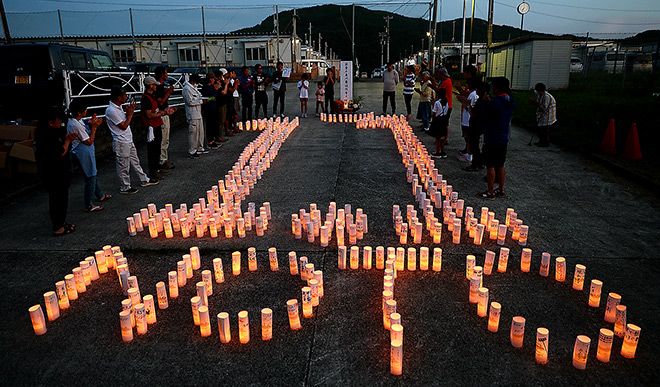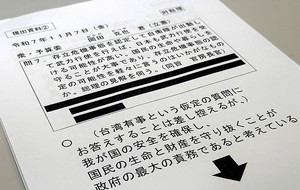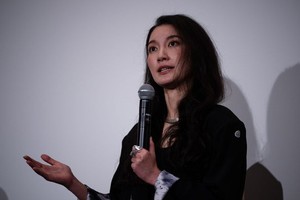Vox Populi, Vox Dei is a daily column that runs on Page 1 of The Asahi Shimbun.
December 30, 2024 at 10:48 JST
 Paper lanterns are lined up to read "1.1 Noto" at a memorial in Wajima, Ishikawa Prefecture, marking six months since the New Year's Day earthquake. (Toshiyuki Hayashi)
Paper lanterns are lined up to read "1.1 Noto" at a memorial in Wajima, Ishikawa Prefecture, marking six months since the New Year's Day earthquake. (Toshiyuki Hayashi)
I recently visited Okunoto, the northernmost area on the Noto Peninsula in Ishikawa Prefecture. The Sea of Japan, whipped by chilly winter winds, was a churning canvas of whitecaps under leaden clouds.
I headed to the center of Wajima, the largest city in the region, where a vibrant morning market once thrived.
Blackened shells of houses, untouched for more than six months after the New Year’s Day earthquake, have finally been demolished and removed, leaving the area completely and eerily bare.
“When the debris was there, seeing it made me feel sad, but without it, it feels like memories that were attached to those places have vanished, too,” Keiko Hiyoshi, who has passed her 70th year, said in a hesitant and halting manner beside her shop, which stands across the street and narrowly escaped the fire.
She continues to live in a temporary residence in Kanazawa. “What will happen now?”
Famous tourist spot Mitsukejima, an uninhabited islet off Suzu, a town at the tip of the peninsula, now stands fractured and misshapen.
Tomomi Miyaguchi, a 39-year-old woman living in nearby temporary housing, works as a guide leading visitors through the disaster-stricken areas. “I can’t yet tell people to come visit as tourists.”
But she has started doing the work as she grapples with the question of what can be done for the future of her devastated hometown.
The remains of collapsed houses are still grimly coated with seaweed brought by the tsunami. “I want people to come here and see, and then imagine all this happening to them. There’s a reason to learn from this,” she said.
A support concert by Hirari Sato was held at the Monzen junior high school in Wajima. The 23-year-old blind singer who performed at the Tokyo Paralympics, called out to the students, “Even in darkness, if you open the eyes of your heart, you can walk forward.”
Heavy rains, which came months after the Jan. 1 quake, inflicted further damage on this already battered region.
Yumiko Ogawa, the junior high school’s principal, appeared slightly teary. “It’s really tough now, but it’s comforting to receive a message that there is something beyond this hardship.”
It will soon be one year.
--The Asahi Shimbun, Dec. 29
* * *
Vox Populi, Vox Dei is a popular daily column that takes up a wide range of topics, including culture, arts and social trends and developments. Written by veteran Asahi Shimbun writers, the column provides useful perspectives on and insights into contemporary Japan and its culture.




















A peek through the music industry’s curtain at the producers who harnessed social media to help their idols go global.
A series based on diplomatic documents declassified by Japan’s Foreign Ministry
Here is a collection of first-hand accounts by “hibakusha” atomic bomb survivors.
Cooking experts, chefs and others involved in the field of food introduce their special recipes intertwined with their paths in life.
A series about Japanese-Americans and their memories of World War II